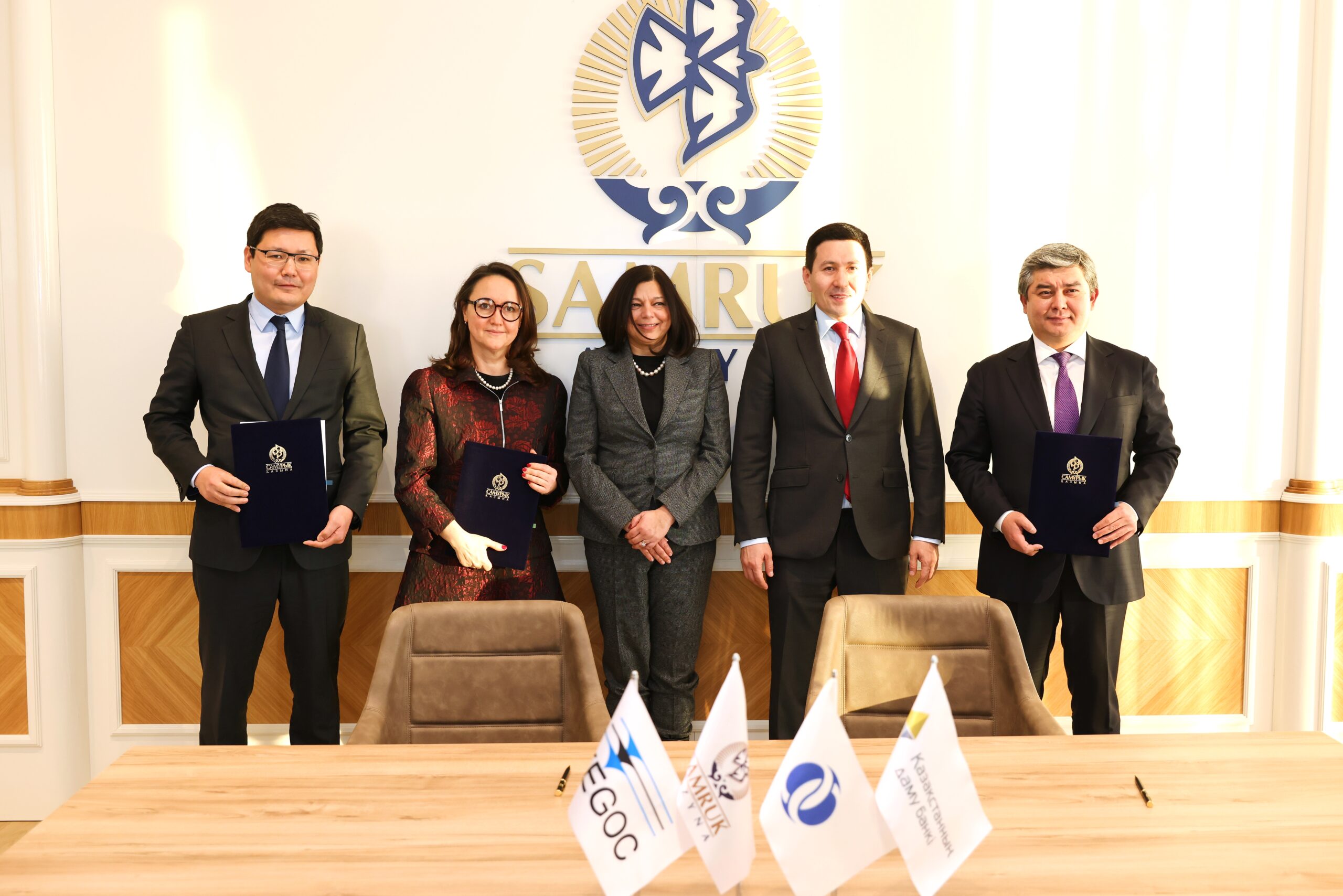ASTANA – Kazakhstan Electricity Grid Operating Company (KEGOC) signed loan facility agreements with the European Bank for Reconstruction and Development (EBRD) and the Development Bank of Kazakhstan (DBK) to implement a project on consolidating Kazakhstan’s power system.

Photo credit: KEGOC
According to the DBK’s press service, funds of up to 32 billion tenge (US$61 million) will be allocated for the construction of the 500 kilovolt (kV) Karabatan-Ulke transmission line (along the Atyrau-Aktobe highway) and the 500 kV Karabatan substation, as well as for the expansion of switchgear at the Karabatan (220 kV) and Ulke (500 kV) substations. This will significantly strengthen local power flows and improve the reliability of power supply in Western Kazakhstan.
“The combined efforts are aimed at modernizing Kazakhstan’s energy system and its adaptation to the modern challenges, including the transition to sustainable and environmentally friendly energy sources,” said DBK Chair Marat Yelibayev.
The EBRD arranged a financial package to KEGOC consisting of a bank loan of up to €252 million (US$280.5 million) and a concessional loan of €15 million (US$15.75 million) from the government of Canada under the High Impact Partnership on Climate Action, reported the EBRD’s press service on Dec. 3.
It will allow KEGOC, which operates more than 27,800 kilometers (km) of overhead transmission lines across Kazakhstan, to construct around 600 km of 500 kilovolt (kV) of transmission infrastructure and to facilitate integration of the West Kazakhstan Power System into the country’s Unified Power System.
“The project is part of the EBRD’s efforts to help Kazakhstan implement its long-term decarbonization strategy to achieve carbon neutrality in its power sector by 2060. It will improve power supply for the population in western Kazakhstan and facilitate the integration of up to 12 gigawatt (GW) of renewables by 2030 across the country,” reads the EBRD’s statement.
It will also help address the historical division of Kazakhstan’s power grid into three separate electricity systems. In 2004, the EBRD helped to connect the northern and southern energy systems, but the West Kazakhstan Power System still operates in isolation.
The funds will go towards constructing the 500kV Karabatan-Ulke power line (along the Atyrau-Aktobe motorway) and the 500 kV Karabatan substation and expanding the switchyards at the Karabatan (220 kV) and Ulke (500 kV) substations. The new infrastructure will strengthen domestic interconnections and enhance the reliability of power supply in western Kazakhstan.
The project is expected to reduce annual CO2 emissions by more than 200,000 tons. It is supported by grant funding from the government of Japan.
The EBRD will also provide KEGOC with technical assistance to pilot integration of digital technologies into the grid, strengthen the company’s resilience to potential cyberattacks and introduce a new gender-responsive training.
To date, the EBRD has invested more than €10.4 billion (US$10.9 billion) in 332 projects in Kazakhstan, with most of those funds supporting private entrepreneurship.
